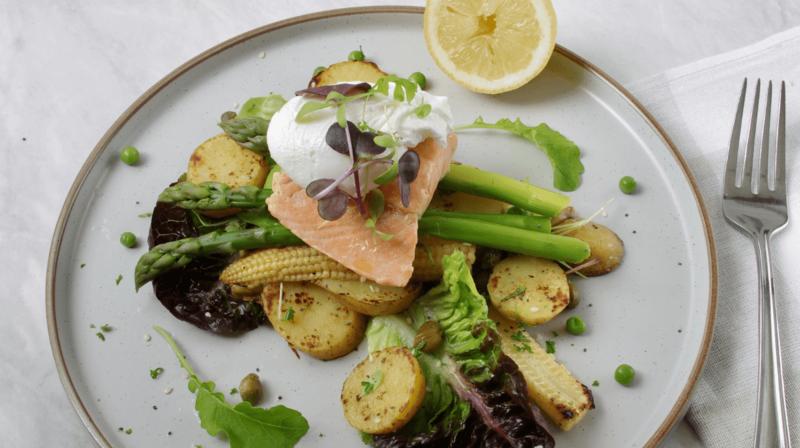How to Create Delicious Low-Calorie Dishes for a Balanced Evening Meal
Navigating the challenges of maintaining a healthy lifestyle, dinner is frequently the meal where it’s easiest to stray from nutritional goals. The allure of high-calorie, convenient dishes can be strong, particularly after a taxing day. However, the good news is that a fulfilling and flavorful meal need not be laden with calories. This guide delves into the creation of delectable low-calorie dishes that not only satisfy your taste buds but also support a balanced evening meal.

Understanding Low-Calorie Dishes
To embark on preparing low-calorie dinners, it’s crucial to grasp what these dishes constitute. Low-calorie meals are crafted to deliver essential nutrients while minimizing calorie intake, which assists in maintaining a healthy weight, reducing blood pressure, and boosting overall health. Contrary to the common misconception, these meals do not compromise on taste or fulfillment.
Key Elements of Low-Calorie Dishes for Dinner
Successful low-calorie cooking revolves around several core components. Here’s what to keep in mind when crafting your evening meals:
- Choose High-Fiber Ingredients: Integrating a variety of vegetables and whole grains is key. Fiber not only aids digestion but also prolongs the feeling of fullness with minimal calories.
- Lean Proteins: Select sources such as chicken breast, turkey, beans, and tofu. These proteins fulfill your body’s needs without excess fats.
- Healthy Fats: Incorporate moderate amounts of healthy fats from avocados, olive oil, and nuts. These fats are not just flavorful but also crucial for heart health.
- Herbs and Spices: Use a generous amount of herbs and spices to enhance meals without additional calories, turning simple dishes into exciting ones.
Low-Calorie Dinner Recipe Ideas
Here are some dinner ideas that are both low in calories and high in flavor:
Grilled Lemon Herb Chicken Salad
- Marinate chicken breast with lemon juice, minced garlic, olive oil, and a blend of thyme and rosemary. Season with salt and pepper for taste.
- Grill until the chicken is thoroughly cooked.
- Combine on a bed of leafy greens with cherry tomatoes, cucumber slices, and a sprinkle of feta cheese for added flavor.
- For a dressing, whisk together lemon juice and olive oil, keeping it light and refreshing.
Quinoa and Black Bean Stuffed Peppers
- Prepare quinoa as directed and combine with black beans, corn, diced tomatoes, cumin, and chili powder for a hearty filling.
- Halve bell peppers, deseed them, and stuff with the quinoa mixture.
- Bake at 375°F (190°C) for about 20 minutes or until the peppers are tender.
Baked Salmon with Asparagus
- Lightly season salmon fillets with salt, pepper, and lemon zest. Arrange on a baking sheet.
- Add fresh asparagus spears around the salmon. Drizzle with olive oil to enhance moisture and flavor.
- Bake at 400°F (200°C) for 12-15 minutes, or until the salmon is cooked through and asparagus is tender.
The Importance of Portion Control
Beyond choosing the right ingredients, controlling portions plays a pivotal role in enjoying a low-calorie dinner:
- Use Smaller Plates: Smaller plates can visually suggest a more substantial meal, reducing the likelihood of overeating.
- Measure Serving Sizes: Be diligent with portion sizes to ensure eating just enough to satisfy nutritional needs and hunger.
- Eat Slowly: Taking time to enjoy each bite helps in recognizing fullness, preventing overindulgence.
Tips for Staying on Track
Consistency and planning are vital for maintaining a healthy diet:
- Plan Your Meals: By knowing ahead what you will eat, you reduce the temptation for spur-of-the-moment unhealthy choices.
- Prepare Ahead: Pre-cook or prepare components ahead of time to streamline your meal preparation, especially on busy days.
- Stay Hydrated: Drinking water throughout the day helps ward off unfounded hunger pangs that might actually be thirst.
Conclusion
Crafting enticing low-calorie dishes is about more than just reducing caloric intake; it’s about celebrating flavorful, nutritious foods that nurture your body and elevate your dining experience. Embrace a variety of fresh ingredients, focusing on quality proteins, fiber-rich vegetables, and beneficial fats. By making thoughtful choices about every meal, you can create a robust foundation for a health-conscious lifestyle. Dive into your culinary pursuits, and let each dinner reflect a commitment to healthy living.

